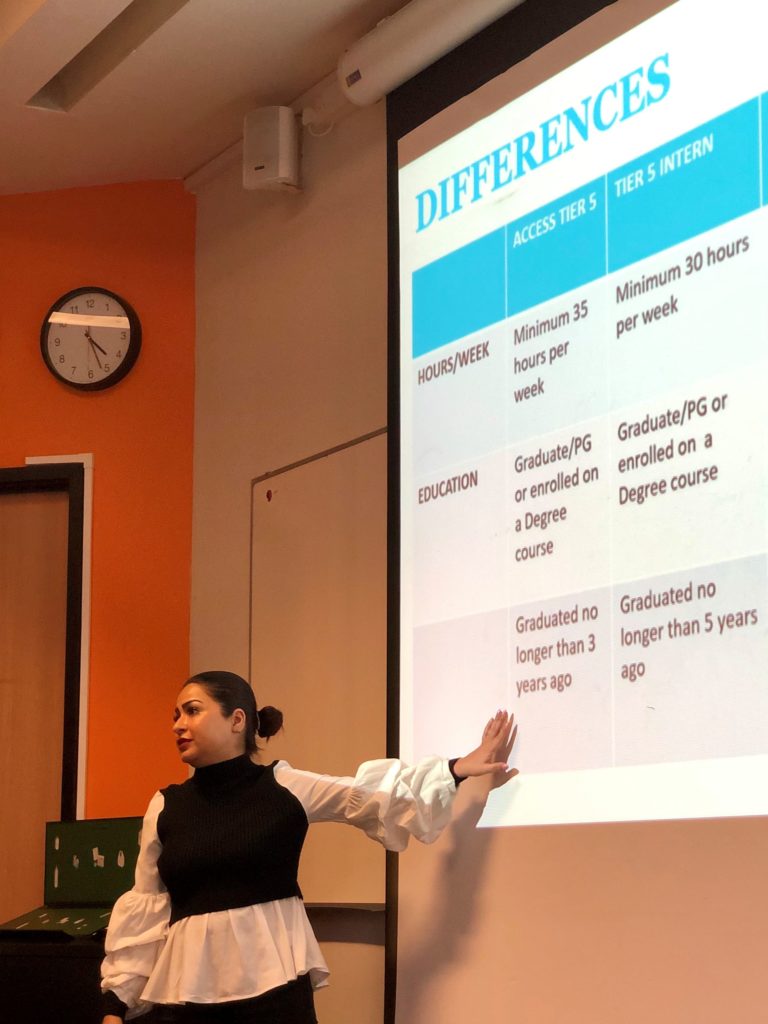Birkbeck’s Responsible Business Centre seminar series returned with a thought-provoking discussion on how jobseekers respond to Corporate Social Irresponsibility in prospective employers.
When it comes to attracting new talent, research shows that there are two factors affecting a company’s attractiveness:
- Corporate Social Responsibility (CSR), which signals to jobseekers that a company might be a good employer and treat its employees fairly.
- The company’s dominance in its industry, which implies a good level of resources to pay employees well and to offer opportunities for career development.
What happens when jobseekers’ positive impression of a dominant company comes into conflict with Corporate Social Irresponsibility (CSI)?
In the first of this term’s Responsible Business Centre seminars, Dr Benedetta Crisafulli, Deputy Director of the Centre, presented research published with Professor Paolo Antonetti, NEOMA Business School, and Dr Aybars Tuncdogan, King’s College London, on jobseekers’ reactions to CSI. Their research explores how job seekers react to situations where potential employers behave irresponsibly, with a particular focus on unravelling the circumstances under which job seekers overlook the wrongdoing altogether.
Benedetta explained: “When we analyse the effects, we are interested in the tension: CSI tells me that the company lacks integrity, but market dominance might tell me that a company is treating its employees very well. CSI might give me a signal of incompetence, but dominance tells me the exact opposite. That’s where the tension comes and that’s why it’s relevant to look at them together.”
The study asked jobseekers in retail to evaluate market dominant employers involved in CSI. The results show that CSI has a negative effect on perceived competence, ethicality and thus attractiveness. However, as hypothesised, this effect is not as pronounced for dominant employers, where people who are interested in a particular industry seem to be happy to turn a blind eye to CSI.
Benedetta explained what is happening from the perspective of the jobseekers: “When a dominant employer is involved in CSI, we try and elaborate in our mind what might justify the negative event, to be able to say that the company didn’t mean to do it. This is even more so if we are genuinely interested in building a career in the industry where the dominant employer operates.
“The more we are certain of our initial positive impression of an employer, the more likely we are to engage in defensive thinking. The opposite happens if we are not certain of our impression of the company. In such a case, we are even more critical of the company.”
Concluding the presentation, Benedetta warned that CSI remains detrimental for companies, yet not so much for dominant ones. Non-dominant employers are likely to suffer more from CSI in terms of talent recruitment. Non-dominant employers might ponder ways to signal dominance, while media and policymakers should raise their bar when it comes to scrutinising dominant brands, who might think that irresponsibility won’t hurt them.
Further Information:

